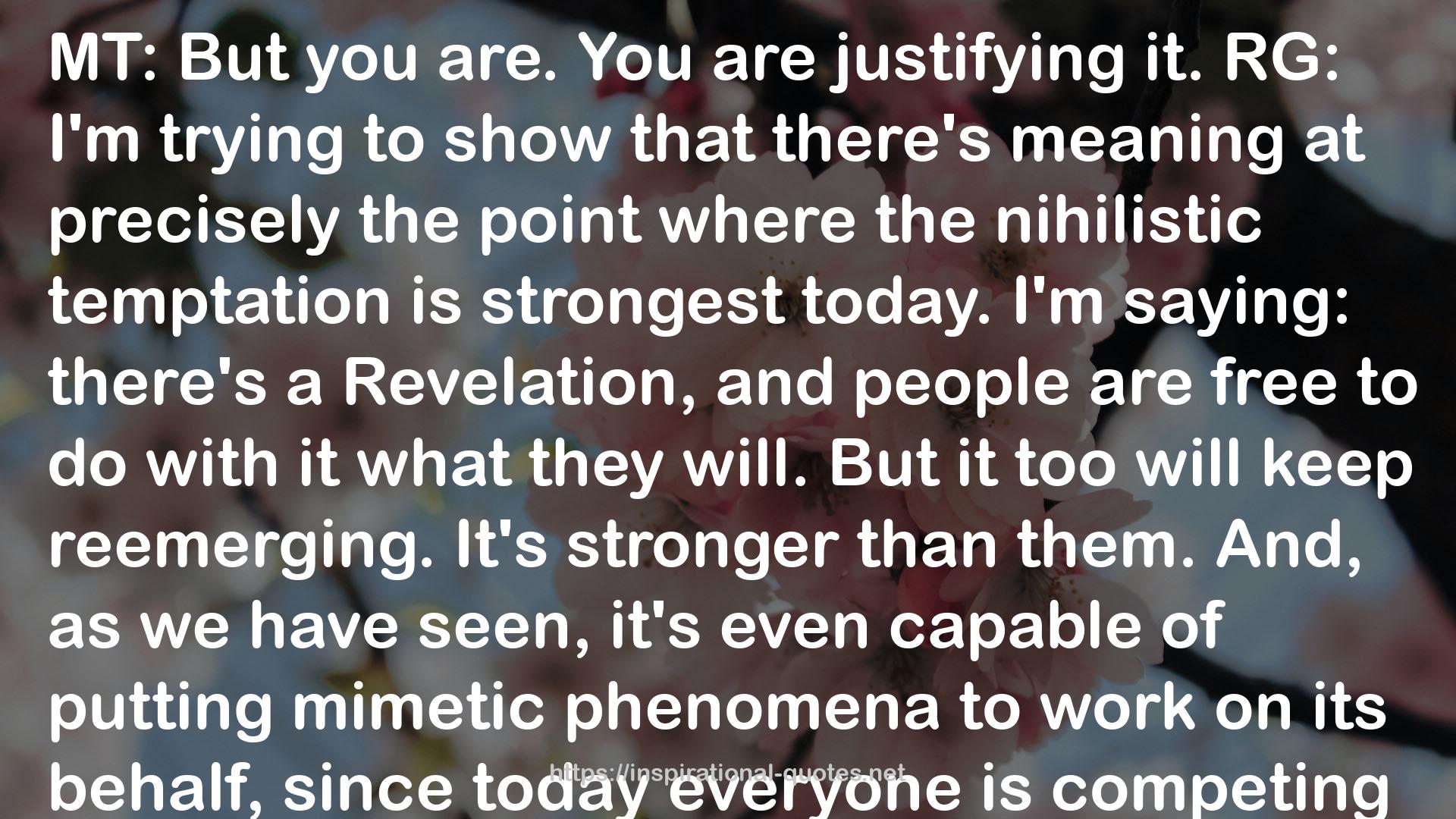" MT: But you are. You are justifying it. RG: I'm trying to show that there's meaning at precisely the point where the nihilistic temptation is strongest today. I'm saying: there's a Revelation, and people are free to do with it what they will. But it too will keep reemerging. It's stronger than them. And, as we have seen, it's even capable of putting mimetic phenomena to work on its behalf, since today everyone is competing to see who is the most “victimized.” Revelation is dangerous. It's the spiritual equivalent of nuclear power. What's most pathetic is the insipidly modernized brand of Christianity that bows down before everything that's most ephemeral in contemporary thought. Christians don't see that they have at their disposal an instrument that is incomparably superior to the whole mishmash of psychoanalysis and sociology that they conscientiously feed themselves. It's the old story of Esau sacrificing his inheritance for a plate of lentils. All the modes of thought that once served to demolish Christianity are being discredited in turn by more “radical” versions of the same critique. There's no need to refute modern thought because, as each new trend one-ups its predecessors, it's liquidating itself at high speed. The students are becoming more and more skeptical, but, and above all in America, the people in power, the department chairs, the “chairpersons,” as they say, are fervent believers. They're often former sixties' radicals who've made the transition to administrative jobs in academia, the media, and the church. For a long time, Christians were protected from this insane downward spiral, and, when they finally dive in, you can recognize them by their naïve modernist faith. They're always one lap behind. They always choose the ships that the rats are in the midst of abandoning. They're hoping to tap into the hordes of people who have deserted their churches. They don't understand that the last thing that can attract the masses is a Christian version of the demagogic laxity in which they're already immersed. Today, it's thought that playing the social game, whether on the individual or the group level, is more indispensable than thinking…it's thought that there are truths that shouldn't be spoken. In America, it's become impossible to be unapologetically Christian, white, or European without running the risk of being accused of “ethnocentrism.” To which I reply that the eulogists of “multiculturalism” place themselves, to the contrary, in the purest of Western traditions. The West is the only civilization ever to have directed such criticisms against itself. The capital of the Incas had a name that I believe meant “the navel of the world. "
― René Girard , When These Things Begin: Conversations with Michel Treguer
